Barista robot, 3D fitting room, satellite layout
What the Kazan Digital Week 2024 exhibition displays
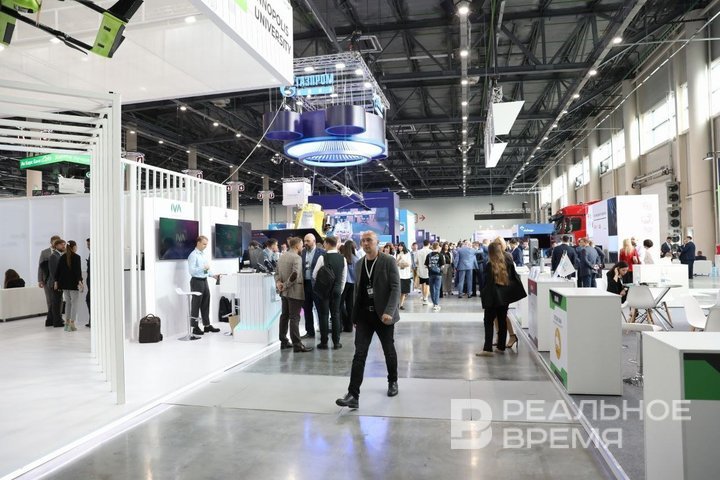
The three-day Kazan Digital Week 2024 International Forum has opened in the capital of Tatarstan. Traditionally, it hosts an exhibition of high-tech developments, software, software and hardware complexes, operating samples of machinery and equipment. This year, about 200 companies and organisations are displaying their stands. A brief overview of the exposition is in the material of Realnoe Vremya.
Queues at the barista robot
The stand of the Ministry of Digital Development of Tatarstan attracts visitors not only with a mock-up of the train cabin, but also with a barista robot, near which there is always a queue.
“The coffee is quite tasty, be sure to try it," Pavel Vilenko, an engineer at Mind Robot, suggested to the correspondent of Realnoe Vremya.
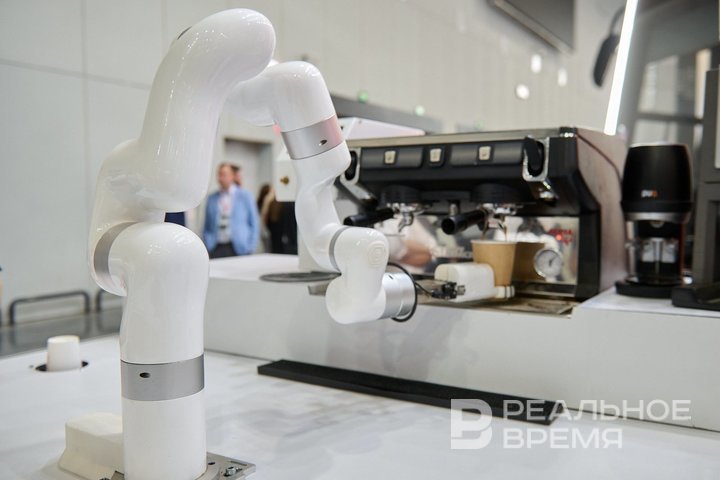
He said that the device is capable of making coffee no worse than a barista is. The robot not only grinds coffee beans, but also tempers them, brews a drink, adds milk and makes foam. At the moment, there are six types of coffee available on the menu of the barista robot, but there are eight in total. It can run for about 1.5 hours without stopping, but this time can be increased
“The taste of coffee does not change, the robot is not influenced by external factors. It won't be like it didn't get enough sleep or someone spoiled its mood on the way. It works following the set program," the engineer explained. Now such a robot has already been installed in the Moscow City Hall.
“The number of illegal landfills has decreased by more than 60%, and budget savings for the elimination of landfills amounted to more than 150 million rubles”
Digital solutions for road and public safety were presented by Urbantech Group. At the Kazan Digital Week exhibition, they showed the Azimut photo-video recording equipment for traffic violations line and demonstrated a number of solutions based on artificial intelligence.
“At our stand, we present our own photo-video recording equipment. The Azimut Parking complex is designed to monitor compliance with the rules of stopping and parking vehicles, the Azimut DT transport detector captures all parameters of the traffic flow, transmits information to intelligent transport systems, and also records signs of traffic violations, including those related to the speed limit. The core of our equipment line is the Azimuth 4 photo-video recording complex, which recognises 51 types of traffic violations — hard shoulder running, crossing into oncoming traffic. With the use of AI, an unbuckled seat belt, the use of a phone while driving, and others are recorded. Azimut 4 has high resistance to climatic conditions, to the dark, and the maximum error in measuring speed is 1 km/h, Konstantin Agureev, the director of public relations at Urbantech Group, told Realnoe Vremya.
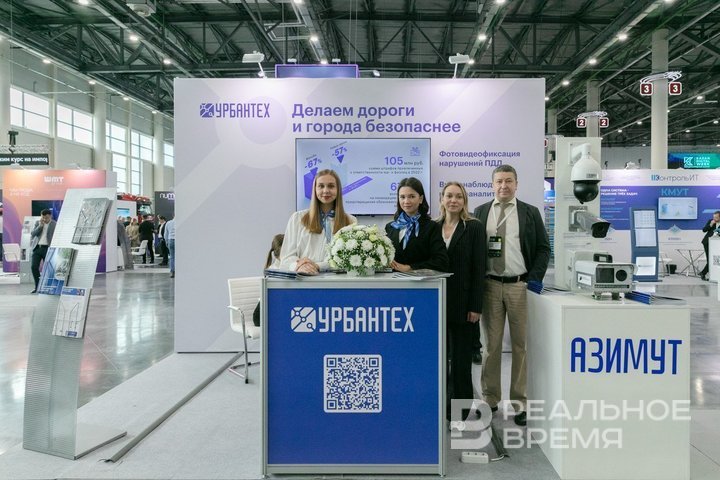
There are other solutions based on artificial intelligence and neural networks, for example, the OSSiG-control automatic system for controlling the turnover of construction waste.
“By the results of two years of operation in the Moscow region, the number of illegal landfills has decreased by more than 60%, and budget savings for the elimination of landfills amounted to more than 150 million rubles," Konstantin Agureev explained.
Another system, Taxi Control, helps to monitor compliance with the requirements for registration of taxi cars. Over 2 years of operation in the Moscow region, the decision has helped to identify more than 37,000 violations.
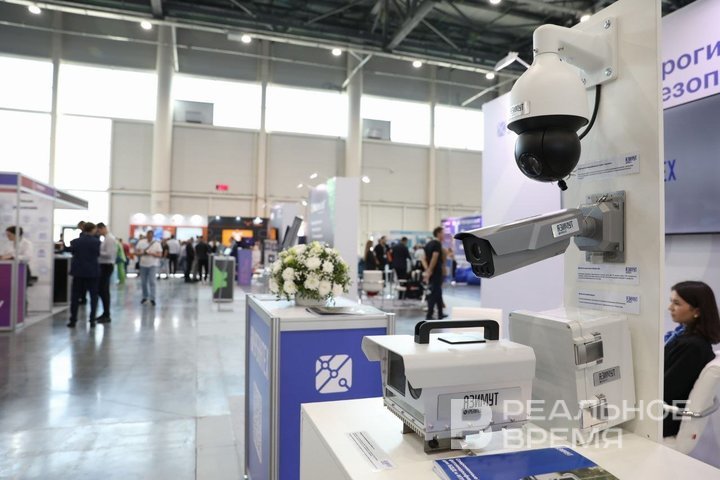
“Another intelligent solution in the field of transport is the analysis of queues at public transport stops. A simple video surveillance camera is installed next to the stop, connected to a neural network that calculates the queue length and waiting time. This allows public transport carriers to customise their work," said the director of public relations of the Urbantech Group of companies.
“Would you like my twin brother to work in Innopolis?"
Another robot that attracts at first glance is Ardi from Promobot company, Perm.
“This is a service robot that can talk, answer questions, sing, accept payments, work as a concierge, a tour guide," Maxim Chugunov, CEO of Promobot, told Realnoe Vremya. At the moment, four such robots have been released, and five more are being prepared for release.
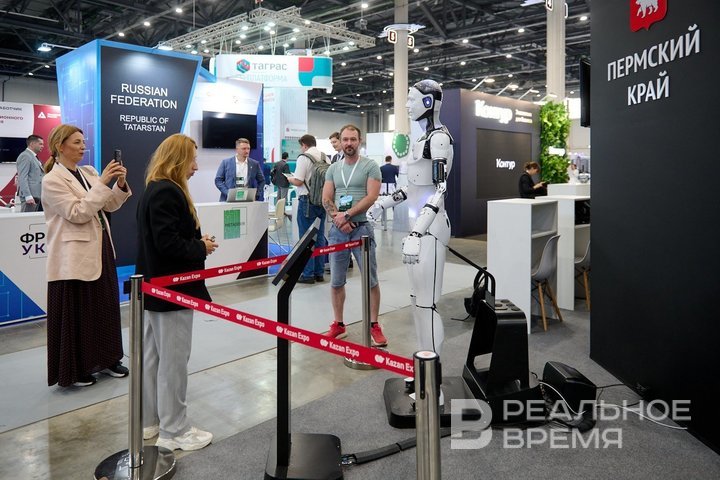
Rustam Minnikhanov, the rais of Tatarstan, visited the stand.
“They say that in Tatarstan, as in the Perm region, there are countless advanced technologies. “Would you like my twin brother to work in Innopolis?" Ardi offered him. The rais agreed.
“We are ready to pay hackers if they find any vulnerabilities in our infrastructure”
According to CEO Aidar Guzairov, the Innostage stand turned out to be global this year — it housed not only the company itself, but also partners, including Kaspersky Lab and Innopolis University, who supported the student cyber battle this year. However, this time they decided to surprise not only with a battle of students among themselves, but with their own experience of confronting the strongest hackers — cybersecurity researchers.
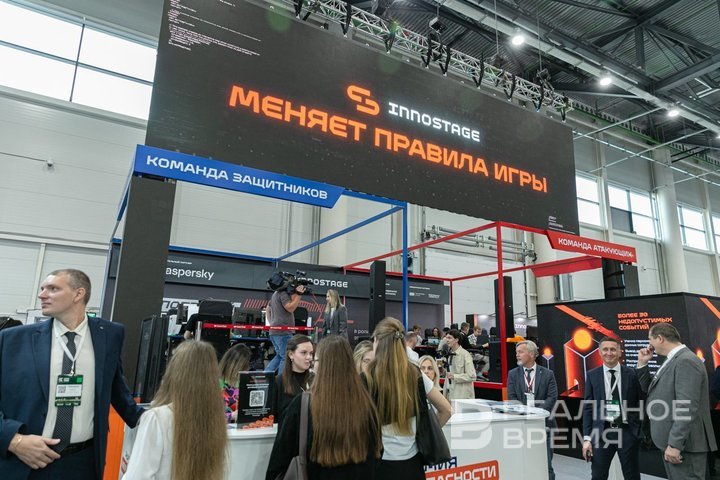
“Innostage entered open cyber trials at the beginning of the summer. In fact, we are ready to pay hackers if they find any vulnerabilities in our infrastructure. Today, we are increasing payments for hackers — from 5 to 10 million rubles, just to show a different approach to security. For me, as the head of the company, this action is aimed at another measurability of my security. I want to sleep more peacefully, realising that hackers are checking me out. And now, with Ayrat Khairullin, we want to use similar methods in the Tatarstan Ministry of Digital development, testing certain segments with the help of hackers. But now we have announced an amount of 10 million, I think it will gradually increase," Aidar Guzairov told Tatarstan rais Rustam Minnikhanov.
Ruslan Suleymanov, the director of digital transformation at Innostage, told the visiting editorial office of Realnoe Vremya that attackers are now trying to infiltrate the work of networks through subcontractors.
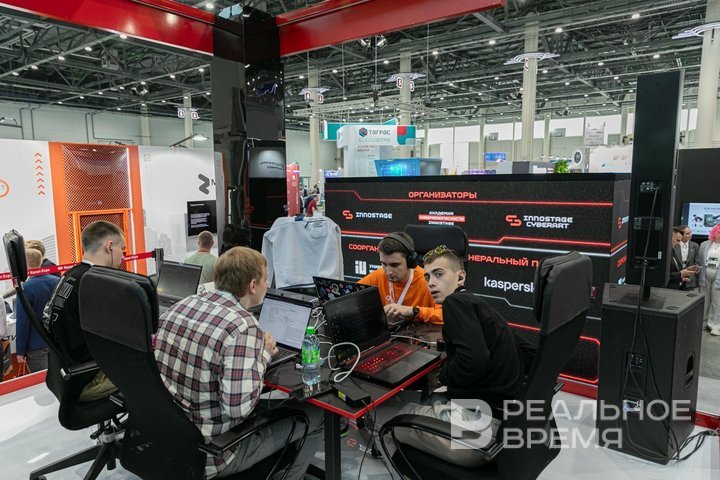
“First of all, it is necessary to audit and inventory the IT infrastructure, as well as double-check employees with a privileged level of access to the company's services. This is more relevant than ever before, because the flow of cyber attacks has increased tenfold. For example, since the beginning of open cyber-tests, we have already been attacked by more than 360,000 times (between the end of May and the beginning of September). At this forum, we are demonstrating a methodology for protecting objects, and we also presented a cyber academy that tells how to learn how to counter threats.
Right here at the stand, as last year, the All-Russian Student Cyber Battle started, already the third in a row. Rustam Minnikhanov gave it the start. As in the “adult” cyberpolygons, hacker teams (“red”) are trying to hack the infrastructure and economy of the city, and defensive teams (“blue”) are investigating attacks. This year, 180 participants are taking part in the battle — 11 teams of defenders and 15 teams of attackers from 16 regions.
A satellite mock-up from Gazprom
Not only by robots, but also the joint stand of Gazprom SPKA and Gazprom Space Systems with satellites, one of which occupied half of the companies' site, caused excitement.
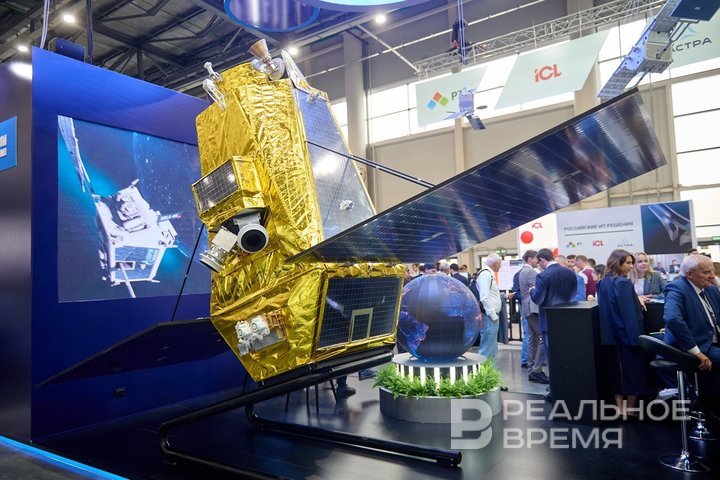
“This is a life-size mock-up of the Earth remote sensing satellite Smotr-V. There are no such devices in Russia yet, it will be a highly detailed optical satellite with a camera resolution of half a metre per pixel. In addition, it will be equipped with a methane emission detector," Alexey Titov, the head of Public Relations and Media at Gazprom Space Systems, explained to Realnoe Vremya. “The Gazprom SPKA plant received a license from Roscosmos on April 12 this year for production, that is, it already exists.”
According to him, the companies were created primarily to provide services to Gazprom Group, but now solutions are presented to customers all over Russia.
Virtual pottery workshop and 3D fitting room
The engineering centre of the Kazan State Institute of Culture presented an augmented reality museum with a virtual pottery workshop, as well as a 3D fitting room. It uses technology that reflects human behaviour. A special camera captures the movements of a person and thus superimposes a 3D model of the dress on the figure as realistically as possible.
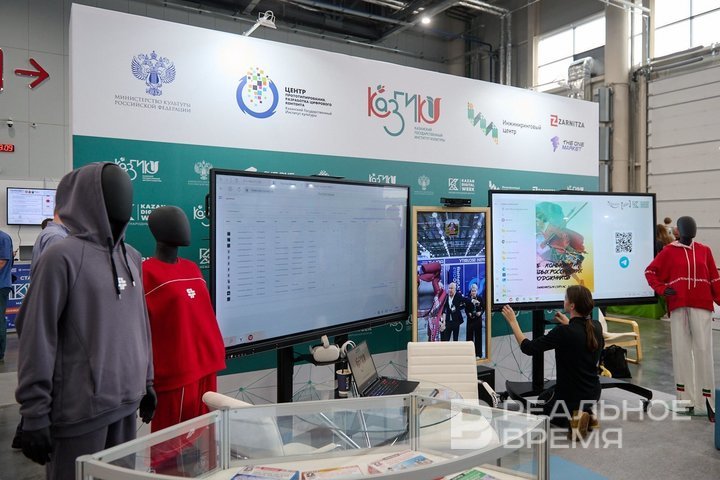
“I think this is part of the technology of the future, so that people can try on clothes before they buy. I like the idea that it will be possible to create various ornaments or clothing options, and people will have the opportunity to try them on before ordering, to make sure that they like this option," explained Roman Yermoshin, the director of 1Market.
Of course, these are not all the solutions that are presented at the exhibition. Other companies represented include Tattelecom, which focused on solutions for individuals; ICL, which shared a stand with partners Astra and P7; KAMAZ, which exhibited an unmanned truck prototype. Iran also presented the stand for the first time at the forum.